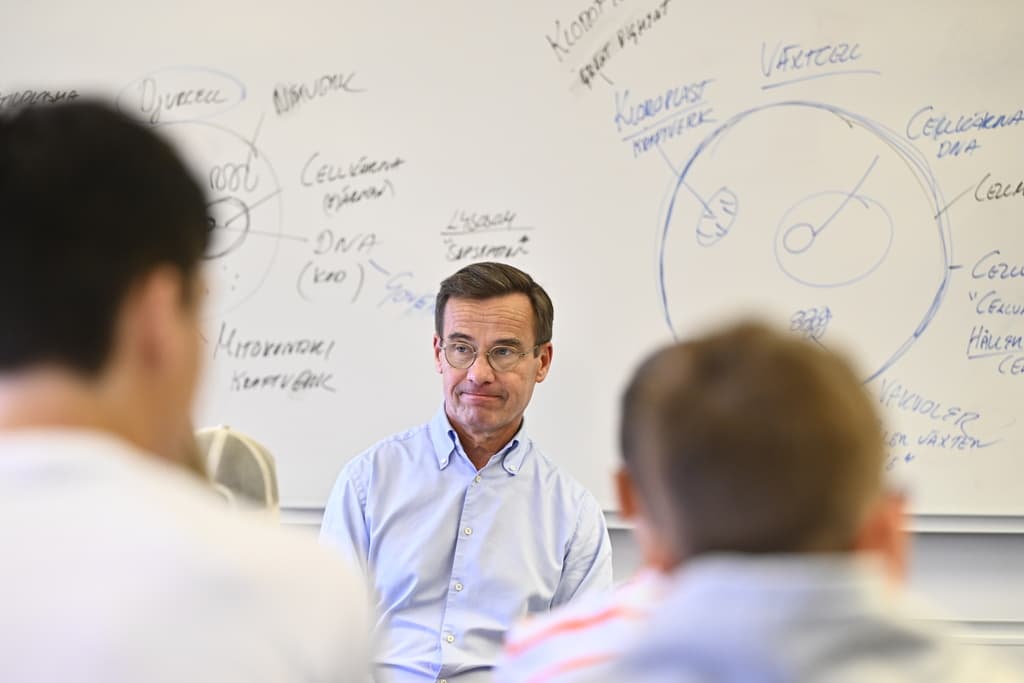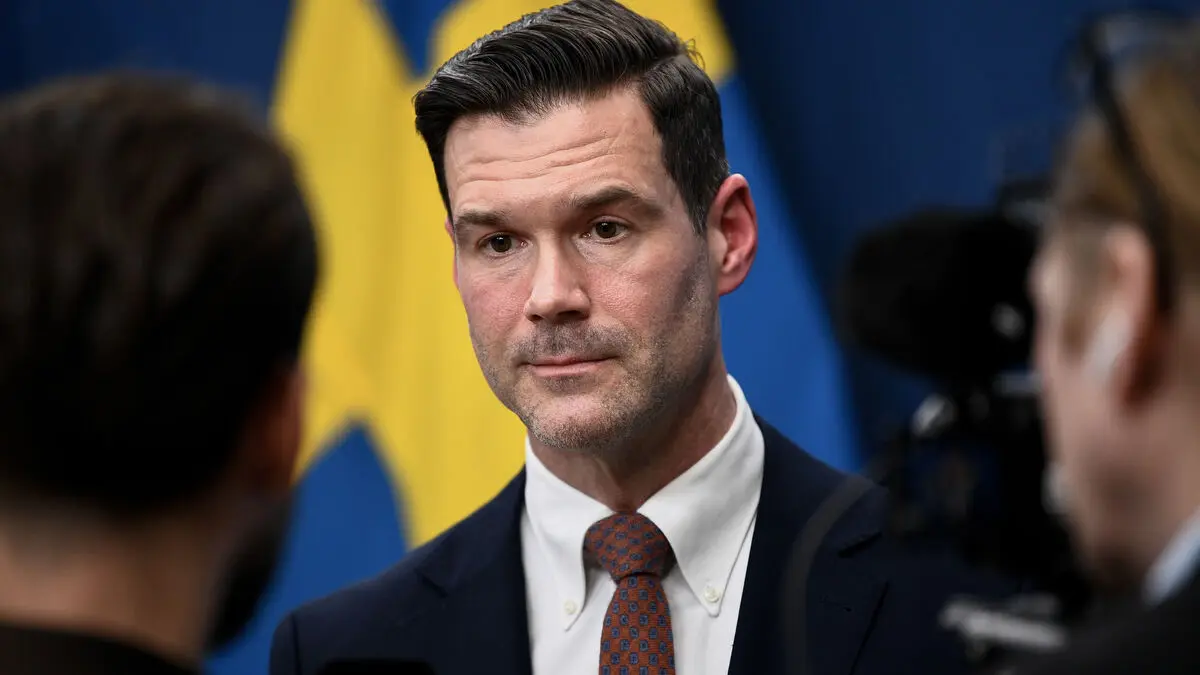Prime Minister Ulf Kristersson visited the elementary school Söraskolan in Åkersberga on Wednesday. Last week, a total mobile ban was introduced both during lessons and breaks.
In the morning, the students hand in their mobile phones, which are then locked in a room. They don't get them back until both school and leisure time are over.
National norm needed
If the students don't hand in their mobile phones in the morning, the school calls their parents to ask about it.
In class 5b at the school, several children say they think it's a good idea.
My friends and I play role-playing games instead, says a boy to the Prime Minister.
When Ulf Kristersson visits a seventh-grade class at the school, the enthusiasm is somewhat lower.
The idea of making elementary schools completely mobile-free was included as a point in the Tidö Agreement between the government parties and the Sweden Democrats when the agreement was updated last autumn. A investigation will be set up soon.
Ulf Kristersson says that a national norm is needed for how schools should handle students' mobile phones.
It's much easier to get respect for the rules if they are common, he says.
It's no big deal. Hand in your phone in the morning and you'll get it back when you go home.
Kristersson adds that there should be opportunities for exceptions, for example, if a student has a parent who is ill.
Students puff
Irene Georgellis, the principal of Söraskolan, welcomes legislation in the area. She believes that support from politics would "make everyday life easier".
We started several years ago by not allowing mobile phones during lessons. But we saw that it was a problem that the students had them in their pockets. So we agreed on mobile-free lessons as a compromise with our high school students, she says.
For preschool to sixth grade, there was already a mobile ban. Now, the school management has chosen to go further and ban them completely for high school students as well.
The first day, the students were puffing, the mobile phone is not just a mobile phone, it's personal. It was hard for them to abstain, says Irene Georgellis and continues:
I haven't heard anything negative from the parents. I think they themselves want to have support to be able to set boundaries at home, so it's good if we're in the forefront.






